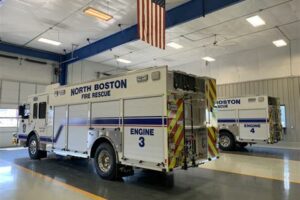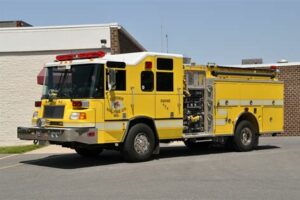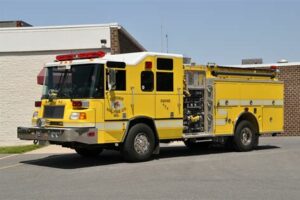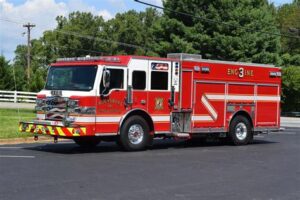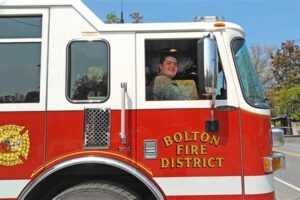Table of Contents
Looking to support your local community? Colorado Volunteer Fire Departments are always in need of dedicated individuals who are passionate about serving and protecting others. Joining a volunteer fire department allows you to make a difference, learn valuable skills, and become part of a close-knit team. Find out how you can get involved today!
Colorado Volunteer Fire Departments play a crucial role in keeping their communities safe, often risking their lives to protect both property and lives. With their selfless dedication and unwavering commitment, these brave men and women serve as the backbone of emergency response in countless rural areas across the state. From battling wildfires that engulf vast acres of land to responding swiftly to medical emergencies, they are always ready to spring into action. In fact, it is these very volunteers who form an essential line of defense when disaster strikes, ensuring that help is just a phone call away. As we delve deeper into their extraordinary work, it becomes evident that without these unsung heroes, Colorado’s vulnerable communities would be left vulnerable and exposed.
The Vital Role of Colorado Volunteer Fire Departments
Colorado, known for its stunning landscapes and outdoor recreational activities, is also home to a dedicated network of volunteer fire departments. These brave men and women selflessly serve their communities, often risking their lives to protect others. While the state has professional fire departments, it heavily relies on volunteers to provide crucial emergency response services in rural areas. Let’s take a closer look at the essential role these volunteer fire departments play in Colorado.
A History of Volunteer Firefighting
The tradition of volunteer firefighting in Colorado dates back to the late 1800s. As settlers arrived in the area, they quickly recognized the need for organized fire protection. Local residents banded together to form volunteer fire departments, pooling their resources to combat wildfires and structure fires. Over time, these departments evolved to incorporate modern firefighting techniques and equipment.
Training and Certification
Despite being volunteers, members of Colorado’s fire departments undergo extensive training to ensure they can effectively respond to emergencies. They receive instruction in fire suppression, search and rescue, medical aid, hazardous materials, and more. Additionally, many firefighters pursue certifications such as Emergency Medical Technician (EMT) or Hazardous Materials Technician to enhance their skills and qualifications.
Equipment and Resources
While volunteer fire departments may face budget limitations, they strive to maintain adequate equipment and resources. These departments rely on donations, community fundraisers, and grants to purchase firefighting gear, vehicles, and other necessary supplies. Additionally, they often collaborate with neighboring fire departments and agencies to share resources during large-scale incidents.
Response to Wildfires
Colorado is no stranger to devastating wildfires, particularly in its more rural areas. Volunteer fire departments play a crucial role in responding to these incidents, working alongside professional firefighters and other emergency management agencies. Their local knowledge and familiarity with the terrain allow them to provide valuable support during wildfire containment and evacuation efforts.
Community Outreach and Education
Volunteer fire departments in Colorado recognize the importance of community outreach and education. They actively engage with residents, providing fire safety tips, conducting drills, and offering CPR and first aid classes. These efforts help raise awareness about fire prevention and emergency preparedness, empowering community members to protect themselves and their loved ones.
Emergency Medical Services
Many volunteer fire departments in Colorado also provide emergency medical services (EMS). Volunteers trained as EMTs can respond to medical emergencies within their communities, providing initial care until an ambulance arrives. This dual role of firefighting and emergency medical response highlights the versatility and dedication of these volunteers.
Recruitment and Retention Challenges
Like many volunteer organizations across the country, Colorado’s fire departments face recruitment and retention challenges. The demanding nature of the role, coupled with time commitments and the need for ongoing training, can make it difficult to attract and retain volunteers. Efforts are underway to address this issue through targeted recruitment campaigns and incentives.
The Importance of Community Support
Community support plays a vital role in sustaining Colorado’s volunteer fire departments. From attending fundraisers to donating supplies or equipment, residents can contribute to the continued success of these organizations. Recognizing the sacrifices made by volunteers and expressing gratitude for their service goes a long way in fostering a strong bond between the community and its firefighters.
A Call to Action
If you’re a resident of Colorado, consider getting involved with your local volunteer fire department. Whether through volunteering your time, supporting fundraising efforts, or spreading awareness about fire safety, your contribution can make a significant difference in keeping your community safe.
Let’s show our appreciation for the brave men and women who serve as Colorado’s volunteer firefighters, protecting lives and property with unwavering dedication.
An Insight into Colorado’s Diverse Volunteer Fire Departments
Introduction:
Colorado’s volunteer fire departments are the unsung heroes of the state, devoting countless hours and unmatched dedication to protecting their communities. From small rural towns to bustling cities, these organizations play a vital role in firefighting and emergency response. In this article, we explore the fascinating world of Colorado’s volunteer fire departments, shedding light on their challenges, achievements, and the crucial services they provide.
The Backbone of Rural Communities:
In remote areas of Colorado, volunteer fire departments serve as the backbone of their rural communities. These dedicated individuals face unique challenges, including scarce resources, limited access to advanced equipment, and the need for innovative tactics to tackle fires in vast open spaces. Despite these hurdles, these tight-knit departments tirelessly work to ensure the safety and well-being of their fellow residents.
Recruiting and Training Local Heroes:
With the growing need for individuals equipped with firefighting skills, volunteer fire departments in Colorado have implemented rigorous training programs to recruit and prepare aspiring local heroes. From firefighting techniques to emergency medical services, comprehensive training equips volunteers with the necessary skills to efficiently handle emergencies and save lives within their communities.
Financial Constraints and Funding Shortages:
One significant challenge faced by volunteer fire departments in Colorado is securing sufficient funding. These departments heavily rely on grants, fundraisers, and community support to operate effectively. However, funding shortages often hamper their efforts to acquire state-of-the-art equipment, maintain vehicles, and ensure the overall readiness of their departments.
Combating Wildfires:
Colorado’s vast landscapes are prone to destructive wildfires that can decimate entire forests and threaten nearby communities. Volunteer fire departments are at the forefront of combating these fires, often partnering with state and federal agencies. Their specialized knowledge, combined with a deep understanding of their local terrain, allows them to safely navigate treacherous conditions, saving lives and protecting valuable natural resources.
Promoting Community Engagement and Preparedness:
Volunteer fire departments actively encourage community engagement and preparedness. Through various initiatives like fire safety seminars, open houses, and school outreach programs, these organizations aim to educate the public about fire prevention, emergency protocols, and the importance of early detection. By fostering a sense of shared responsibility, volunteer fire departments empower communities to play an active role in preventing and minimizing disasters.
Embracing Technological Advancements:
In an era of rapid technological advancements, Colorado’s volunteer fire departments have recognized the importance of innovation. From advanced communication systems to thermal imaging devices, these organizations have embraced cutting-edge technology to enhance their capabilities and improve response times. These tools aid firefighters in crucial decision-making processes, ultimately leading to more effective emergency response.
Mental Health Support for Volunteers:
The traumatic experiences faced by volunteer firefighters can take a toll on their mental well-being. Recognizing this, some Colorado volunteer fire departments have implemented mental health support programs that offer counseling, peer support, and resources to address the emotional challenges associated with their roles. These programs aim to ensure the long-term well-being of volunteers, promoting resilience and preventing burnout.
Collaboration and Mutual Aid:
Volunteer fire departments in Colorado understand the significance of collaboration and mutual aid. In times of larger emergencies or resource scarcity, neighboring departments come together to provide support and share resources. This spirit of cooperation strengthens the efficiency and efficacy of emergency response, further emphasizing the essential role these organizations play in safeguarding Colorado’s communities.
Conclusion:
Colorado’s volunteer fire departments are an indispensable component of the state’s emergency response system. These selfless individuals, equipped with passion, training, and community support, brave countless challenges to ensure the safety and well-being of their fellow residents. As we express our gratitude for their unwavering dedication, let us recognize the critical role they play in safeguarding Colorado’s communities.
As a journalist covering the activities of Colorado Volunteer Fire Departments, it is crucial to adopt a voice and tone that effectively communicates the significance of their work. By using clear and concise language, we can provide accurate and compelling information to our readers. Here are some key points to consider:
Objective Reporting: It is essential to maintain objectivity while reporting on the actions and achievements of Colorado Volunteer Fire Departments. Presenting facts and figures with neutrality ensures that the reader can form their own opinion based on the information provided.
Informative Tone: Adopting an informative tone allows us to educate our audience about the vital role these volunteer fire departments play in safeguarding their communities. By explaining their duties, training, and the challenges they face, we can raise awareness and appreciation for their selfless service.
Emphasis on Community Impact: Highlighting the positive impact made by Colorado Volunteer Fire Departments is crucial. By sharing stories of successful rescues, preventative measures taken, and community outreach programs, we can showcase their dedication and commitment to ensuring public safety.
Human Interest Stories: Including personal anecdotes and interviews adds a human touch to our reporting. Sharing experiences of both firefighters and community members affected by their efforts helps create an emotional connection and engages readers on a deeper level.
Factual Accuracy: Ensuring the accuracy of information presented is paramount. Verifying details, statistics, and quotes from reliable sources helps maintain credibility and trustworthiness in our reporting.
Sensitivity and Respect: It is important to approach sensitive topics, such as injuries or fatalities, with empathy and respect. Balancing the need to report on these incidents with sensitivity for the affected individuals and their families is crucial.
Advocacy for Support: While maintaining objectivity, we can advocate for increased support and recognition of volunteer fire departments. By highlighting their needs, challenges, and achievements, we can encourage readers to contribute to their cause through donations, volunteering, or advocating for policy changes.
By adopting a journalistic voice and tone that incorporates these elements, we can effectively inform and engage our readers while honoring the dedication and sacrifice of Colorado Volunteer Fire Departments.
Thank you for joining us today as we delved into the invaluable work of Colorado Volunteer Fire Departments. These brave men and women dedicate their time, effort, and often put their lives at risk to ensure the safety and well-being of their communities. Through this article, we have explored their noble mission, the challenges they face, and the profound impact they have on the lives of Coloradans.
As we have discovered, the commitment of Colorado’s Volunteer Fire Departments is unwavering. They selflessly serve their communities, responding to emergencies day or night, regardless of the weather conditions or personal sacrifices required. These dedicated individuals embody the true spirit of volunteerism, often juggling their firefighting duties alongside full-time jobs, families, and other responsibilities. Their unwavering devotion is nothing short of heroic.
However, it is crucial to acknowledge the many obstacles faced by Volunteer Fire Departments in Colorado. Limited funding, a shortage of volunteers, and the increasing frequency and severity of wildfires in the region are just some of the challenges they confront daily. Despite these hurdles, these firefighters persevere, relying on their spirit of camaraderie, resourcefulness, and unwavering determination to keep their communities safe.
In conclusion, Colorado Volunteer Fire Departments play an indispensable role in safeguarding our communities. They are the ones who rush into danger when others are fleeing. Their selflessness and dedication should be commended and celebrated. As members of these communities, it is incumbent upon us to support them in any way we can. Whether through donations, volunteering, or simply expressing our gratitude, let us stand beside these brave men and women who risk it all to protect us. Together, we can assure that the flame of their sacrifice never wavers.
.
People also ask about Colorado Volunteer Fire Departments:
- How do volunteer fire departments work?
- What are the requirements to join a volunteer fire department in Colorado?
- What benefits do volunteers in Colorado fire departments receive?
- Can I volunteer as a firefighter if I have no prior experience?
- Are volunteer fire departments in Colorado well-equipped?
Volunteer fire departments, including those in Colorado, operate on a system where individuals from the community donate their time and effort to provide fire protection services. These dedicated individuals receive training in firefighting techniques, emergency medical response, and other related skills to assist in their duties.
The specific requirements to become a volunteer firefighter in Colorado may vary among departments, but generally include being at least 18 years old, possessing a high school diploma or GED equivalent, having a valid driver’s license, and passing a background check. Additionally, some departments may require applicants to complete basic firefighting training courses.
Volunteers in Colorado fire departments often gain valuable skills and experience in firefighting and emergency response. They also contribute to the safety and well-being of their community. While volunteer firefighters may not receive monetary compensation, many departments offer benefits such as training opportunities, insurance coverage, and retirement plans.
Absolutely! Many volunteer fire departments in Colorado welcome individuals with no prior experience. They typically provide comprehensive training programs to equip new volunteers with the necessary knowledge and skills. This allows individuals to develop their firefighting capabilities and contribute to their community’s safety, regardless of their background.
While the resources of volunteer fire departments in Colorado can vary depending on the location and funding, many strive to maintain adequate equipment and resources to handle various emergency situations. These departments often rely on grants, fundraisers, and community support to acquire modern firefighting tools, protective gear, and vehicles.


